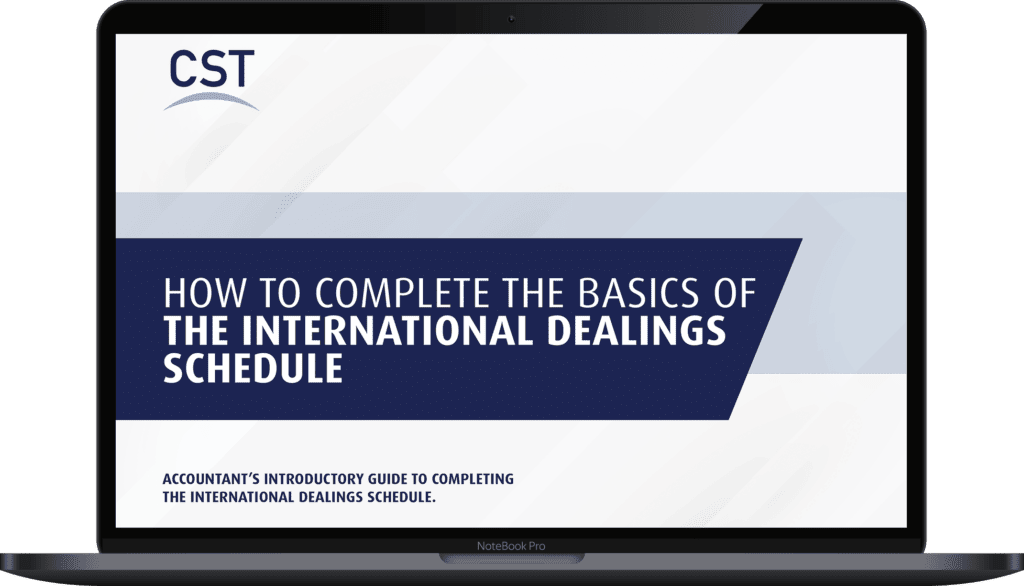Any Australian company that has an interest in a Controlled Foreign Company (CFC) will be required to disclose the relevant information in their tax return. This may include reporting attributed income from the foreign subsidiary when the foreign subsidiary does not meet the active income tests.
You can find more details about the definition of a CFC and understanding when your client has a CFC in our article “How To Identify If Your Client Has A Controlled Foreign Company (CFC)”.
In a busy accounting practice where most clients do not have international interests, it is sometimes the case that disclosures in relation to international interests are not made for the few clients who have them.
Depending on what disclosures have been inadvertently missed, it can be time consuming and sometimes expensive to rectify such errors.
Risk Management Tip: Start from the position that a client who owns a significant interest in an overseas company probably has an interest in a CFC, until it can be ruled out.
We find that the best way to manage professional risk in this area is to have a proactive discussion with your team about approaches to foreign entities. This way you can ensure that the team approaches any client work with the understanding that if an SME client has an interest in an entity overseas, there is a strong possibility that the CFC rules apply.
Risks or Consequences of not Correctly Disclosing an Interest in a CFC
Potential Consequences for the Taxpayer:
When the foreign income section is incorrectly completed, the consequences will depend on whether the return is found to be missing income information and whether this leads to a shortfall.
When there is no shortfall, penalties may be applied under PS LA 2012/4.
PS LA 2012/5 deals with administration of penalties when there is a shortfall.
In such situations, voluntary disclosures can help reduce the potential application of penalties, as outlined in MT 2012/3.
If income is missing, the taxpayer may face the following consequences:
- The ATO may issue a default assessment on the unreported or underreported attributable foreign income. If the ATO regards the omission as fraud or tax evasion there is no time limit for when they can amend your client’s tax return.
- Significant penalties of up to 90% of the amount of shortfall in tax liability, plus statutory interest, can be imposed. Making a voluntary disclosure could substantially reduce penalties applied. Mitigating circumstances can also go towards reduction or remissions in penalties.
- When false or misleading information is provided but there is no shortfall in income tax, the taxpayer can be fined based on the type of behaviour that is determined to have resulted in the false or misleading information. This includes:
- Failure to take reasonable care: Base penalty of 20 penalty units
- Recklessness: Base penalty of 40 penalty units
- Intentional disregard: Base penalty of 60 penalty units
- The amount of a penalty unit can change each year. As of 1 July 2023 a penalty unit under tax laws is $313.
Full details regarding potential penalties can be found on the ATO website: https://www.ato.gov.au/General/Interest-and-penalties/Penalties/Penalties-for-making-false-or-misleading-statements/
Potential Consequences for the Tax Agent:
Tax agents are required to take reasonable care when preparing an income tax return.
Depending on the situation, incorrect statements made in a tax return could expose the tax agent to an action either by the Tax Practitioners board or potentially from the client for failing to advise.
What Should be Addressed
It is important to remind your team that in the cut and thrust of a busy professional practice they should not overlook questions relating to foreign interests and other required international tax disclosures.
If you become aware that your client has an ownership interest in a foreign entity, we suggest ensuring that all relevant documents such as share certificates and the constitution of the overseas company are obtained, reviewed and kept on file.
Clients often misdescribe (usually inadvertently) the nature of overseas entities, oftentimes confusing a partnership with a company and so forth.
Special treatment in relation to foreign hybrids (such as US LLCs) may need to be considered and therefore one should avoid relying on client instructions unless during the course of the preparation of the return the client is willing to accept that tax returns have been prepared on certain stated assumptions.
If a client holds an interest in an overseas company, the question of whether or not the company is a CFC should always be addressed with conclusions.
If the company is a CFC , then it is critical that the client provides you with the CFC’s financial statements so that you can determine what additional questions need to be asked to determine whether or not there would be attributable income to be declared. It is important that financial statements and other relevant information of such foreign entities are on hand to ensure all disclosure requirements in a tax return can be considered.
As a basic starting point questions 26-30 should be carefully assessed. Note that if a client has an interest in a CFC, then Question 28 Label Z should be answered in the affirmative even if the answers to question 26 and 27 are in the negative. Carefully check all dealings with a foreign subsidiary to determine if an International Dealings Schedule then needs to be completed.
Fixing the Issue of Undisclosed CFC income
If a client has lodged returns without properly declaring their CFC interests, it can be a costly, and time intensive error to correct. Corrective measures may include voluntary disclosure and require specialist legal advice.
eBook: How to Complete the Basics of the International Dealings Schedule
To assist your firm and your team to identify and complete the International Dealings Schedule section of the company tax return, we have created the ‘How to complete the basics of the international dealings schedule’ ebook which provides:
 |
|




